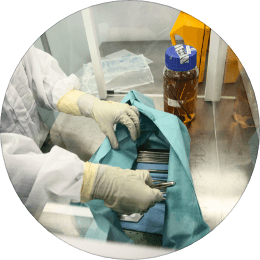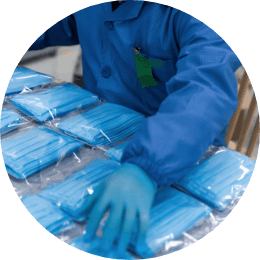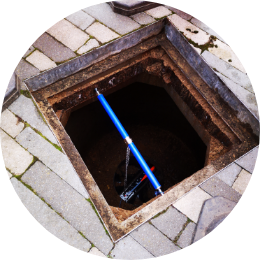Heater-cooler units (HCU) are an essential part of life-saving surgeries involving the heart and lungs(cardiothoracic surgeries) as they help keep the patient’s circulating blood and organs at a specific temperature during the procedure. HCU include tanks that provide temperature-controlled water to external heat exchangers or to warming/cooling blankets through closed water circuits. The water in an HCU is heated up to 41 °C, creating optimal conditions for the multiplication of some microorganisms such as pathogenic bacteria. Although this circulating water does not come into direct contact with the patient, bacteria can be aerosolised by the pumps that move it, thereby favouring their dispersion in the operating room (Figure 1).
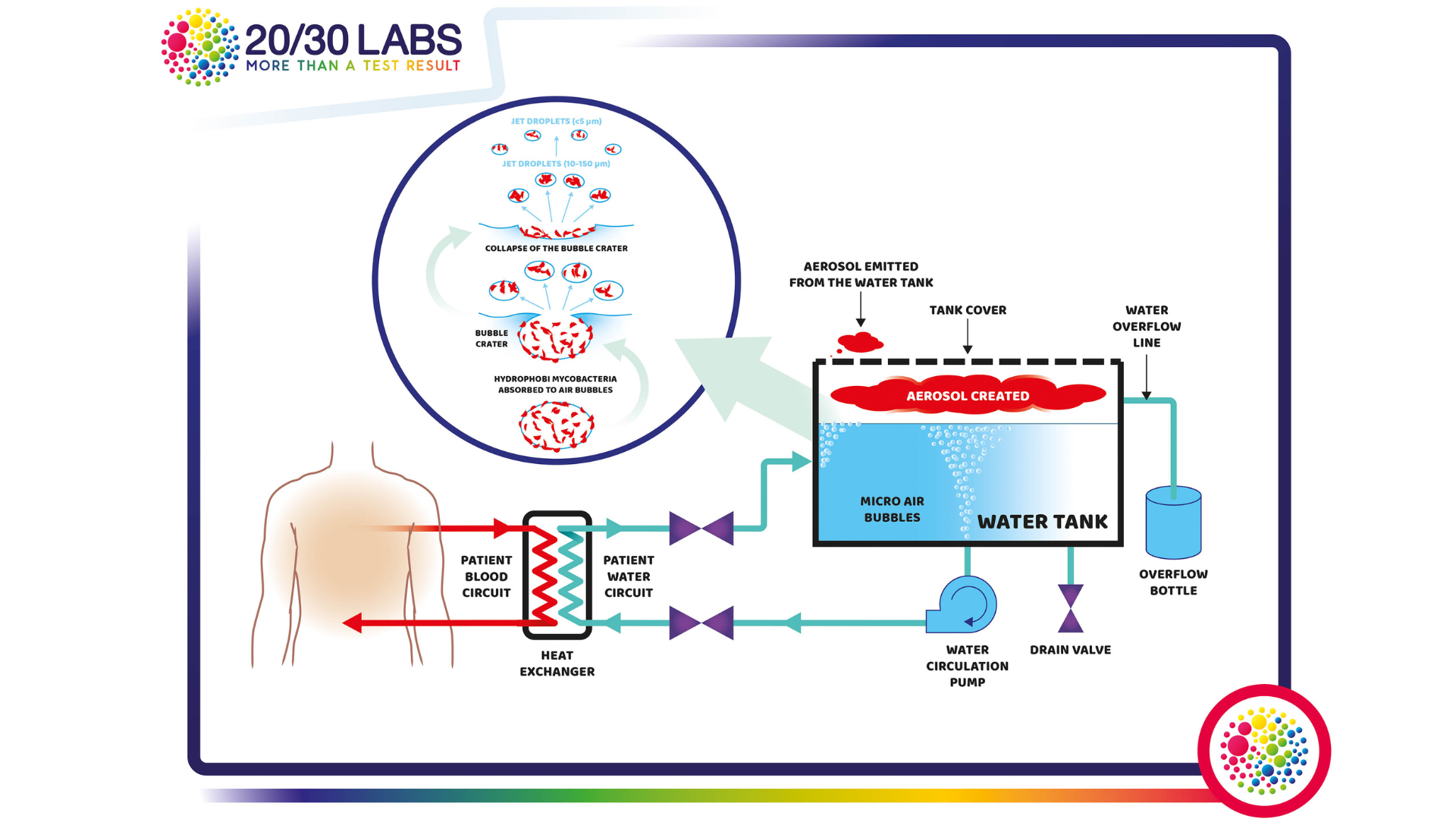
Mycobacterium chimaera is an environmental nontuberculous mycobacterium commonly found in tap water. An oportunistic pathogen, it is clinically associated with respiratory disease or disseminated disease in immunocompromised patients. In recent years, it has become a global public health concern due to infection following cardiac surgery performed with contaminated HCU. M. chimaera appears to form biofilms in the water tanks of the HCU where it can be aerosolised and dispersed through airborne transmission [1].
M. chimaera infection acquired during cardiac surgery through contaminated HCU predominantly caused prosthetic valve endocarditis, disseminated infections and vascular graft infections, with significant morbidity and a mortality rate of 50 %. Over 100 cases have been confirmed worldwide [2-4]. However, the actual number is thought to be vastly underreported due to M. chimaera long latency period (up to five years) and the challenges associated with its correct identification.
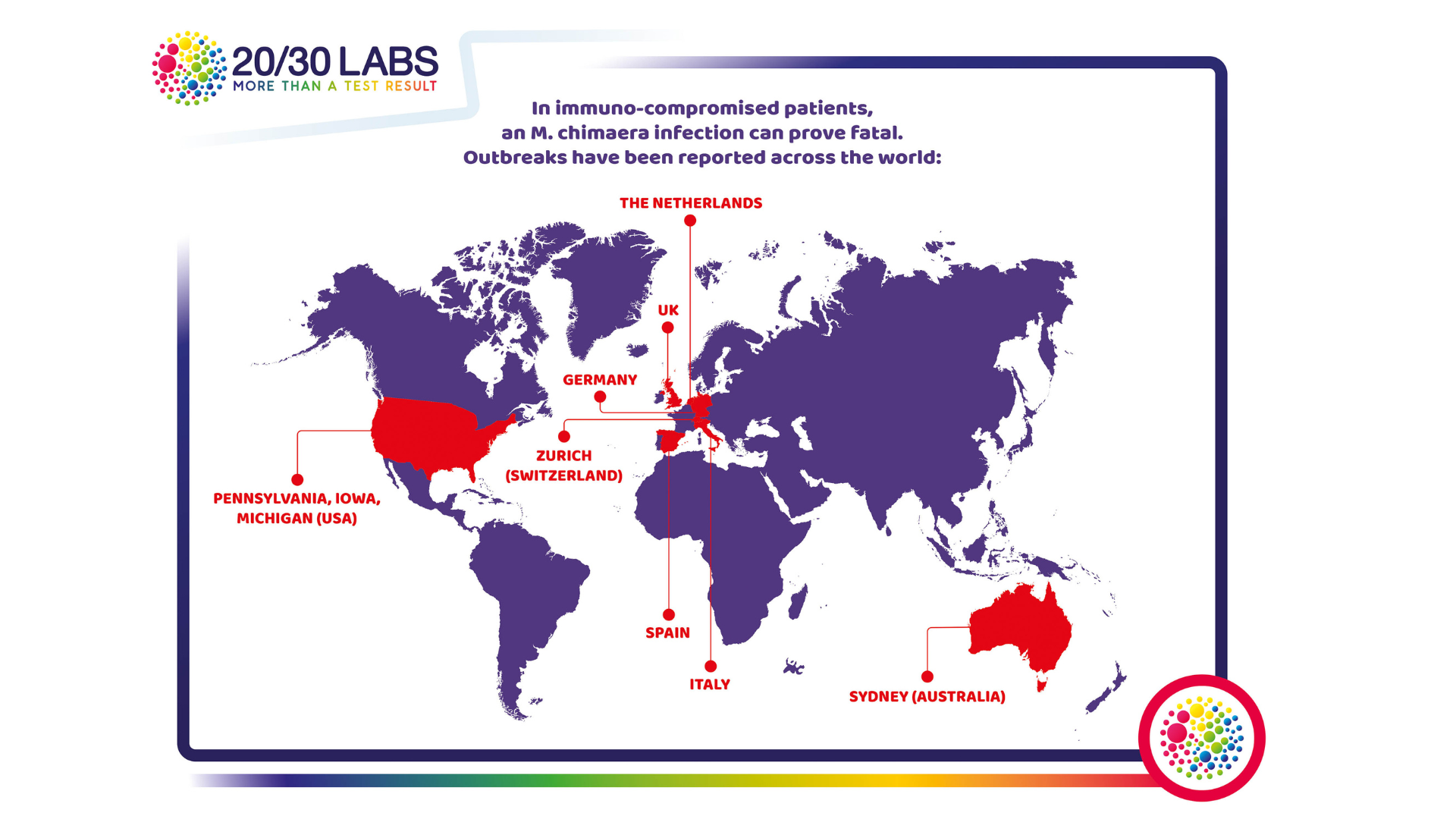

Contaminated HCU have been implicated in other post cardiac surgery infections with pathogens such as Pseudomonas aeruginosa, Legionella spp, other nontuberculous Mycobacteria, gram-negative bacteria and fungi [5]. National authorities in Europe and the US have issued health alerts to surgical facilities, calling for increased vigilance, active surveillance as well as updated decontamination and cleaning protocol. Cleaning and disinfection must follow the manufacturer’s advice and/or MHRA guidance, including Field Safety Notices. However, chemical disinfection may not fully remove all biofilms from the HCU. As it is not always feasible to remove HCUs from service due to service demands, it is absolutely crucial to test HCU regularly, as well as after each decontamination procedure. 20/30 Labs take an active role in fighting M. chimaera infection. We have developed a new assay and for fast, precise and efficient testing of the presence of M. chimaera in HCU. Our method directly detected the presence of M. chimaera in … HCU, leading to the decommission / recall / cleaning of the HCU….
Refrences
- Haller S. et al (2016) Contamination during production of heater-cooler units by Mycobacterium chimaera potential cause for invasive cardiovascular infections: results of an outbreak investigation in Germany, April 2015 to February 2016. Euro Surveill 21(17). doi: 10.2807/1560-7917.ES.2016.21.17.30215
- Sax H. et al. (2015) Prolonged outbreak of Mycobacterium chimaera infection after open-chest heart surgery. Clin Infect Dis 61(1):67-75. doi: 10.1093/cid/civ198
- Kohler P. et al. (2015) Healthcare-associated prosthetic heart valve, aortic vascular graft, and disseminated Mycobacterium chimaera infections subsequent to open heart surgery. Eur Heart J. 36(40):2745-53. doi: 10.1093/eurheartj/ehv342
- Sommerstein R. et al. (2018) Global health estimate of invasive Mycobacterium chimaera infections associated with heater-cooler devices in cardiac surgery. Emerg Infect Dis. 24(3):576-578. doi: 10.3201/eid2403.171554
- Public Health England (2017) Infections Associated with Heater Cooler Units Used in Cardiopulmonary Bypass and ECMO: information for healthcare providers.


